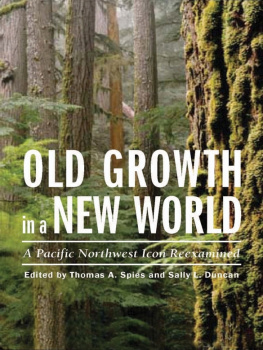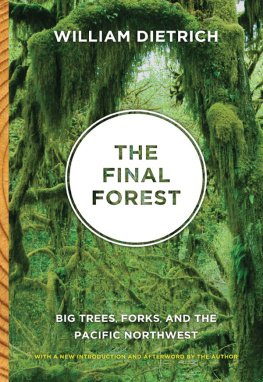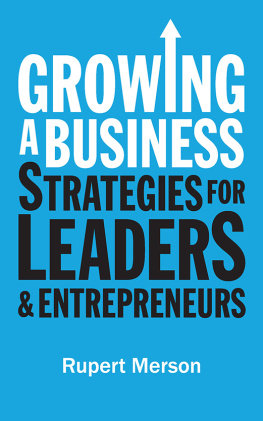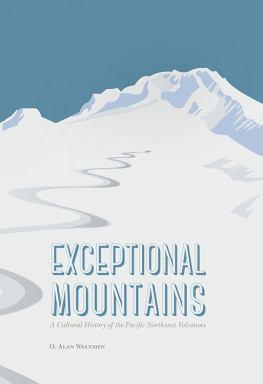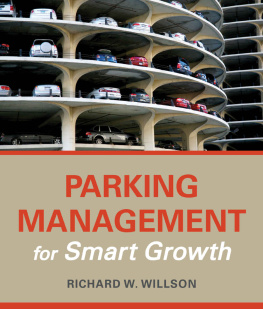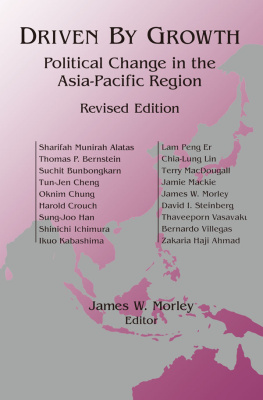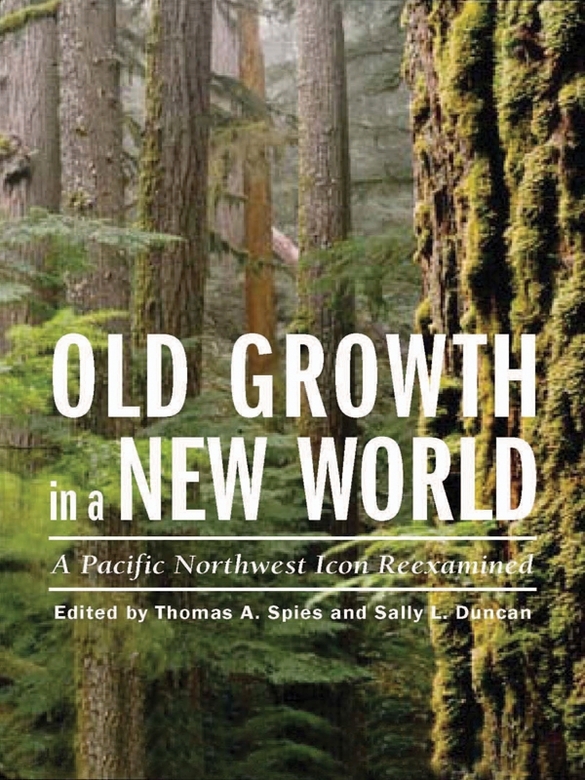We would like to thank the National Commission on Science for Sustainable Forestry, especially John Gordon and Chris Bernabo, for supporting a workshop in the Columbia Gorge in Washington State in May 2005, which led to the idea for this book, and for assistance with the production of the book. We also thank the participants at that workshop for generating many of the ideas found in these pages. Jamie Barbour and the Focused Science Delivery Program of the U.S. Department of AgricultureForest Service, Pacific Northwest Research Station, provided funding to help with the development of the book.
We appreciate the reviews of the chapters that we received from many individuals. We especially thank John Cissel for his ideas and reviews of several of the chapters. Norm Johnson, Fred Swanson, and Denise Lach provided many helpful suggestions and ideas for the book during its development. Keith Olsen provided support for the web page we used to communicate during the writing of the book and designed several of the figures. Tami Lowry formatted and edited the book, Kathryn Ronnenberg reformatted or redesigned many of the figures, and Rob Pabst assisted with preparation of the final manuscript. Barbara Dean and Erin Johnson provided many good suggestions and saw this book through to publication.
CONTRIBUTORS
PETER A. BISSON is a research fisheries biologist and team leader with the U.S. Department of Agriculture (USDA) Forest Services Aquatic and Land Interactions Program, Pacific Northwest Research Station in Olympia, Washington. He specializes in watershed management and native fish conservation.
RICK BROWN is a senior resource specialist with the Northwest office of Defenders of Wildlife, working primarily on conservation of forest biodiversity. He has particular interests in issues of forest management in fire-prone forests, and the implications of climate change for forest conservation. Defenders of Wildlife is dedicated to the protection of all native animals and plants in their natural communities.
ANDREW B. CAREY is an emeritus scientist with the USDA Forest Service, Pacific Northwest Research Station, Olympia, Washington, and owns and operates Serendipity Consulting in Ashford, Washington. He specializes in managing forests and landscapes for multiple values.
SALLY L. DUNCAN is a policy research program manager with the Institute for Natural Resources Directors Office, Oregon State University, in Corvallis. She specializes in the relationships between humans and their natural resources, especially the intertwined roles of science, communications, and social acceptance of resource management.
ERIC D. FORSMAN is a research wildlife biologist with the USDA Forest Services Ecosystem Processes Program, Pacific Northwest Research Station in Corvallis, Oregon. His research interests include the demography of the northern spotted owl and the ecology of the red tree vole.
JERRY F. FRANKLIN is a professor of ecosystem analysis in the College of Forest Resources, University of Washington, in Seattle. He also is the director of the Wind River Canopy Crane Research Facility located in Carson, Washington. His research interests include stand development, ecosystem structure and function, and ecological forestry.
RICHARD W. HAYNES is a recently retired forest economist and program manager of the Human and Natural Resources Interactions program, USDA Forest Service, Pacific Northwest Research Station in Portland, Oregon. His specializations include U.S. forest sector models, the timber markets, and national forest timber demand.
K. NORMAN JOHNSON is Distinguished Professor in the Department of Forest Resources, College of Forestry, Oregon State University, Corvallis, Oregon. He specializes in forest planning and policy.
ANDY KERR is a senior counselor to Oregon Wild (formerly known as Natural Resources Council). He also runs the Larch Company, a nonmembership for-profit conservation organization. He lives in the recovered mill town of Ashland, Oregon.
DENISE LACH is an associate professor in the Department of Sociology at Oregon State University, Corvallis. She specializes in natural resource sociology and organizational sociology.
ROBERT G. LEE is a retired professor of sociology of natural resources in the College of Forest Resources at the University of Washington in Seattle. His research interests are human communities and development and change of forestry institutions.
JOHN LOOMIS is a professor in the Department of Agricultural and Resource Economics at Colorado State University in Fort Collins. He specializes in environmental and natural resource economics and public lands management. Some of the ideas in his paper arose from discussion among workshop participants. The concept of authenticity arose from discussions with Dr. Sandra Gudmundsen, professor emeritus at Metropolitan State College of Denver.
ROSS MICKEY is the western Oregon manager for the American Forest Resource Council in Portland. The groups mission includes creating a favorable operating environment for the forest products industry and ensuring a reliable timber supply from public and private lands.
KATHLEEN DEAN MOORE is Distinguished Professor of philosophy at Oregon State University in Corvallis and the founding director of the Spring Creek Project for Ideas, Nature, and the Written Word. Her current work is in the areas of environmental ethics and philosophy and nature.
BARRY R. NOON is a professor in the Department of Fishery and Wildlife Biology at Colorado State University in Fort Collins. His research interests include landscape ecology, population dynamics, conservation biology, and endangered species management.
CHADWICK DEARING OLIVER is the Pinchot Professor of Forestry and Environmental Studies and director of the Global Institute of Sustainable Forestry, School of Forestry and Environmental Studies at Yale University in New Haven, Connecticut. He is interested in how ecological knowledge of forests and silviculture can help resolve scientific, technical, and management issues at the landscape and policy levels.
JIM PROCTOR is a professor and director of the Environmental Studies Program with Lewis and Clark College in Portland, Oregon. He is interested in the relationships among nature, science, religion, and culture. He is grateful to the National Science Foundation (research grant BCS-0082009) for its support, plus that of two University of California, Santa Barbara, graduate students, Evan Berry and Tricia Mein, who worked alongside him in the survey (2002 survey cited in chapter 9).
GORDON H. REEVES is a research fish biologist with the Aquatic and Land Interactions Program, USDA Forest Service, Pacific Northwest Research Station, in Corvallis, Oregon. His research interests include aquatic ecosystems, landscape ecology, and salmonid conservation.
HAL SALWASSER is dean of the College of Forestry, director of the Oregon Forest Research Laboratory, and professor of forest resources and forest science at Oregon State University, Corvallis. He has been regional forester and research station director with the USDA Forest Service.
HOWARD SOHN is chairman of the board of Lone Rock Timber Company in Roseburg, Oregon. He is past chair of the Oregon Board of Forestry and serves as a director on the Oregon State Board of Higher Education.
THOMAS A. SPIES is a research forester and team leader with the Ecosystem Process Program, USDA Forest Service, Pacific Northwest Research Station, in Corvallis, Oregon. His research interests include forest dynamics, landscape ecology, and integrated approaches to assessing the ecological consequences of forest management.

